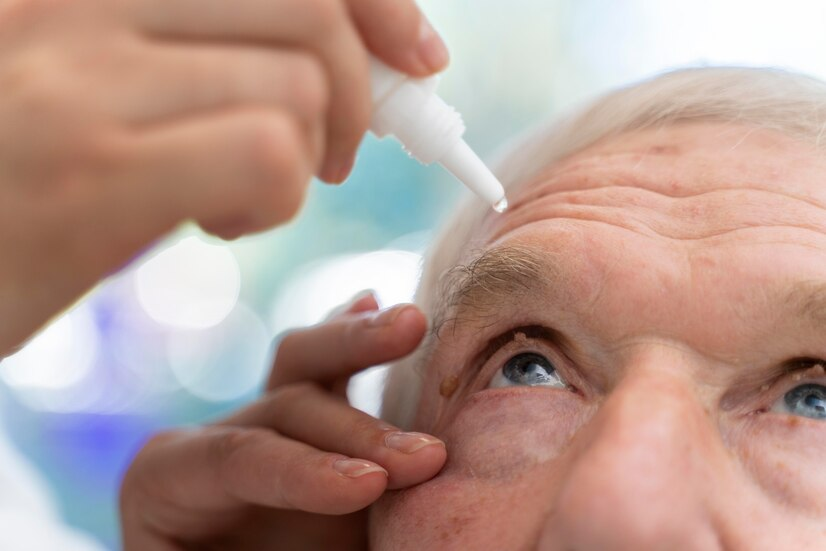Cataract surgery is becoming more common as our population ages and people seek solutions to improve their vision. It is essential to focus on what comes after the procedure, specifically the recovery period for cataract surgery.
Good post-operative care is vital for seeing clearly again and ensuring long-term health of the eye.
Understanding the Immediate Post-Operative Period (First 24-48 Hours)
The first 24 to 48 hours after cataract surgery are super important. You might feel some discomfort during this time. It’s normal to have some redness, mild pain, and sensitivity to light. Expect some changes in vision—it’s all part of the recovery period for cataract surgery. Things might look blurry or change, but this usually sorts itself out soon. To avoid any mishaps, doctors often recommend using an eye patch or shield. These help protect the eye from rubbing or unintentional trauma while you sleep or manage your daily activities.
Significance of the Medication and Eye Drop Regimen
After surgery, using eye drops is key to recovery. The usual drops include anti-inflammatory and antibiotic types. They help in reducing swelling and preventing infections. It’s crucial to apply these drops correctly. Make sure hands are clean before use. Follow the dosage and times as prescribed by the doctor. Proper usage helps ensure a smooth recovery period for cataract surgery and avoids complications. So, sticking to the medication schedule is one of the important precautions after cataract surgery.
Activity Limitations: Essential Guidelines for Recovery
During the recovery period for cataract surgery, you’ll need to avoid certain activities. Here’s a simple list:
- No heavy lifting or bending over.
- Avoid intense exercises.
- Stay out of the swimming pool.
These guidelines usually last for about 2-4 weeks. Participating in these activities too soon may affect healing since increased pressure or risk of water contamination can lead to complications. Always follow these precautions after cataract surgery to ensure a smooth healing process.
Eye Protection and Hygiene: Maintaining Eye Health
When sleeping, use an eye patch for extra protection. Keeping the eye area clean is equally important. Make sure hands are always clean before touching eyes. Avoid letting water directly hit the eye during baths or showers to prevent infections. During the day, wear sunglasses outdoors. This step shields your eye from bright light and dust, which can disrupt healing.
Follow-Up Appointments: Monitoring Recovery Progress
Regular visits to the eye doctor after surgery are crucial. These appointments help monitor how your eye is healing. Doctors check vision clarity and adjust medications if needed. These visits serve an important role in spotting any potential issues early. Ignoring follow-up visits could mean missing early signs of complications. So, always keep your appointments for a smooth recovery period for cataract surgery.
Recognizing Common Symptoms and Urgent Care Needs
Some symptoms after surgery are normal, like mild discomfort or temporary blurry vision. But some symptoms require a doctor’s attention:
- Severe eye pain.
- Vision loss.
- Continuous coughing that affects the eye.
Immediate medical attention is vital if you experience these symptoms. Addressing issues early on ensures a problem-free recovery period for cataract surgery.
Lifestyle and Home Care Tips for Optimal Healing
To help your eyes heal:
- Eat a balanced diet and drink lots of water.
- Minimize screen time to reduce eye strain.
- Keep your living space free from eye irritants like dust.
- Try home remedies that focus on comfort, such as using a cool compress on the eyes.
These simple steps form the foundation of good eye care during the recovery period for cataract surgery.
Returning to Driving and Daily Routines Safely
Once the doctor gives the green light, you can start driving. Always ensure you feel completely safe to do so. It’s best to take baby steps when returning to normal activities. If unsure, always talk to your doctor before making any major lifestyle changes.
Long-Term Recovery: Vision Stabilization and Expectations
Full recovery from cataract surgery might take some time. Improvements in vision can happen slowly over several months. It’s normal to expect some changes before your vision fully stabilizes.
Conclusion
In summary, following specific precautions after cataract surgery is essential for a successful recovery. Abiding by medical advice helps ensure a seamless transition back to daily life. Remember, regular follow-ups and a careful approach to daily activities play a crucial role. Supporting your eyes with good care will lead to the best results during the recovery period for cataract surgery.
